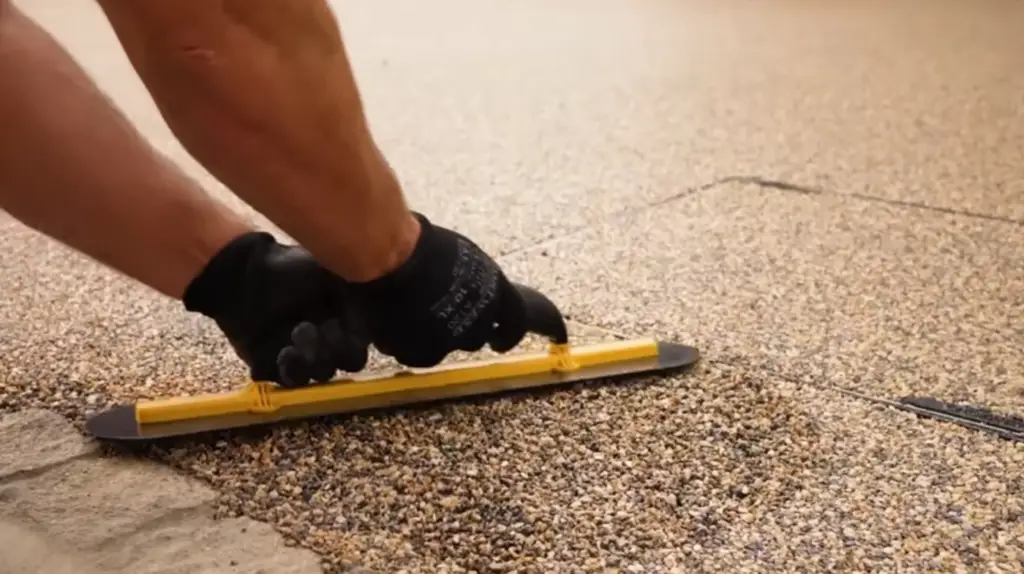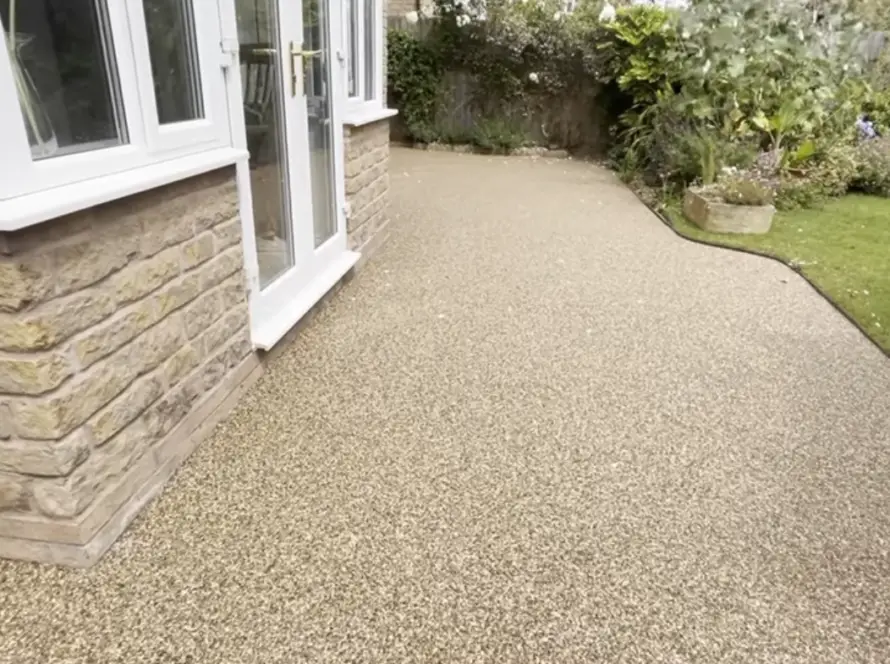Thinking of upgrading your driveway and boosting your kerb appeal? Resin driveways are taking the UK by storm, combining striking looks with impressive durability.
But before you make a move, you’ll want to know: How much does a resin driveway cost? In the UK, expect prices to range from £40 to £120 per square metre, with most total projects falling between £2,800 and £10,000.
This article unpacks the real factors driving costs, from ground preparation and design choices to location and long-term value.
You’ll discover whether resin driveways are truly expensive, the crucial differences between bonded and bound systems, and how smart maintenance ensures your investment lasts.
If you crave a surface that balances style with day-to-day practicality, the insights ahead will ensure your next driveway isn’t just a purchase, but an upgrade for life.
Ready to find out if resin is the right solution for your home? Read on for the details that matter most.
Factors Affecting Resin Driveway Costs
Several critical factors influence the final price of installing a resin driveway, making budgeting more complex than it first appears. Understanding what drives costs higher or lower puts you in control and enables smarter decisions.
Size and Shape of Driveway
The project’s total area is the most significant cost driver. Larger, regularly shaped surfaces usually mean a lower cost per square metre due to bulk material savings, but overall expenses naturally rise with size.
Complex or irregular shapes may require more intricate fitting and edging, increasing labour costs.
Ground Preparation and Basework
Existing surfaces often need levelling, repairs, or complete removal, especially if the old base isn’t suitable.
Extensive groundwork adds significantly to labour and materials—factor this into your budgeting, as skimping on preparation can shorten your new driveway’s lifespan.
Type and Quality of Resin and Aggregates
Premium, UV-stable resin prevents fading and costs more than basic options. Similarly, the quality, colour, and size of aggregates impact both appearance and price. Larger stones require deeper excavation, raising installation costs.
Additional Features and Decorative Edging
Adding custom edging, borders, patterns, or lighting can transform a basic surface into a showpiece, at a premium price. Every decorative choice, from curved edges to contrasting padding, adds materials and labour hours.
Location and Access
Property location within the UK affects pricing due to regional labour rates and transport costs. Difficult access—narrow driveways or busy urban areas—also increases installation complexity and time.
Are Resin Driveways Expensive?

When evaluating driveway options, resin driveways offer a mid-range initial cost compared to alternatives like block paving, tarmac, or concrete.
On a per-square-metre basis, resin typically costs between £40 and £120, while other materials such as tarmac are around £90/m², block paving about £100/m², concrete approximately £95/m², and gravel close to £60/m².
Are resin driveways expensive? Although their upfront price can be higher than some materials, their exceptional durability and low maintenance requirements often lead to long-term savings on upkeep and repairs.
Additionally, resin surfaces are attractive and weed-resistant, making them a value-oriented investment for both commercial and residential properties.
Bonded Resin Driveways: What Should You Know?
Bonded resin driveways differ from bound options—here’s how:
- Resin-bound systems mix aggregates and resin, creating a seamless, fully bonded, porous surface that’s both decorative and SuDS compliant (no planning permission needed if installed properly).
- Bonded resin systems involve spreading resin on the base and scattering aggregate on top, leaving a semi-bonded, non-porous finish less suitable for drainage management.
Each suits different needs—bound for smooth, modern, and permeable driveways; bonded for a traditional gravel look with easier application.
Post-Resurfacing Road Maintenance
Maintaining your new resin driveway is critical to retaining its appearance and structural integrity. After installation, implement essential steps for post-resurfacing road maintenance:
- Immediate inspections for unevenness, edges, and drainage
- Regular cleaning to prevent debris build-up and moss
- Drainage checks to ensure water isn’t pooling
- Crack sealing and patching to stop minor issues from worsening
Following this, proactive maintenance extends the paved surface lifespan and maximises your investment.
Surfacing Solutions for Commercial and Residential Properties
Resin surfacing solutions fit a wide range of applications, appealing to both homeowners and commercial clients.
Residential driveways prioritise style and kerb appeal, often using smaller aggregates and decorative features.
Commercial spaces demand greater durability and thicker surfaces to withstand heavier traffic, a crucial difference for car parks or office complexes.
Bespoke resin installations offer tailored options for both settings, ensuring a robust, attractive surface built for specific demands.
Factors Affecting Paved Surface Lifespan
Several factors affecting paved surface lifespan play a crucial role in determining how long your driveway or paved area will last, especially when using resin.
First, the quality of materials and construction is vital; premium resin combined with skilled installation ensures a solid, long-lasting surface. Environmental exposure also impacts longevity, as UV rays, rain, and temperature changes can cause degradation over time.
Heavy traffic and vehicle loading lead to faster wear, making traffic volume another key factor. Proper drainage, both on the surface and below, prevents water damage that can compromise the structure.
Finally, a consistent maintenance regime that includes routine cleaning, timely repairs, and protection from harmful substances like oil or chemicals significantly extends the lifespan of any paved surface.
Advantages and Considerations
Resin driveways offer a blend of visual appeal, permeability, and low maintenance, making them an arguably non-expensive choice in the long run for many homeowners and businesses.
Ensure you work with reputable, experienced surfacing providers; this impacts the price and quality for years to come.
Frequently Asked Questions
How long does a resin driveway last?
A professionally installed resin driveway can last between 15 and 25 years with proper care and regular maintenance.
Is planning permission needed for a resin driveway?
Generally, no planning permission is required for permeable resin-bound driveways. Still, always check with your local authority, especially if you’re altering the front of your property or live in a conservation area.
Are there maintenance requirements for resin driveways?
Yes, routine cleaning and annual inspections ensure optimal performance. Keeping the surface clear of weeds, debris, and chemicals helps maintain its longevity.
What’s the difference between resin-bound and resin-bonded driveways?
Resin-bound systems are fully mixed and permeable—ideal for modern homes and drainage solutions. Resin-bonded types are non-porous and best when full permeability is not required.
Choose a Resin Driveway for Lasting Beauty, Value, and Performance
Resin driveways strike a balance between stunning aesthetics, reliable performance, and long-term value.
While initial costs may vary, the low maintenance, durability, and eco-friendly benefits make them a smart choice for homeowners and businesses alike.
Understanding the factors that influence pricing, like materials, design, and installation, ensures you make informed decisions.
Whether you’re after style, strength, or sustainability, a resin driveway delivers lasting results. Invest wisely today for a driveway that performs and impresses for years to come.



